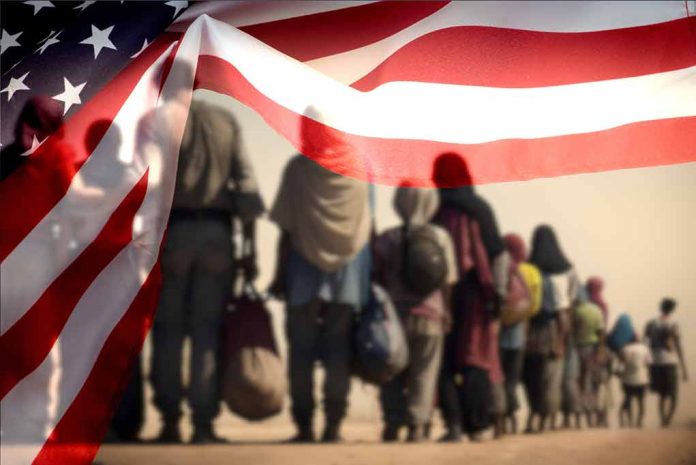
Key Takeaways
- Trump’s immigration policies potentially threaten free speech and dissent rights.
- Deportation is being used against individuals like Mahmoud Khalil for perceived foreign policy threats.
- Legal experts warn of the broad application of a rarely used provision, impacting First Amendment rights.
- Cases involving international students highlight the tensions between policy and constitutional freedoms.
Immigration Policies and the First Amendment
Under the Trump administration, an obscure provision in immigration law has been utilized to deport Mahmoud Khalil, a legal permanent resident. Cited as a potential threat to U.S. foreign policy, Khalil’s case has sparked legal and public debate. Critics argue that the provision, which grants the U.S. Secretary of State the authority to deport on foreign policy grounds, infringes on First Amendment rights.
The Trump administration has not clarified the specific reasons Khalil is deemed a threat. His lawyers argue that the deportation is unconstitutional retaliation for his political views, emphasizing that non-citizens traditionally enjoy First Amendment protections.
Over the last two and a half years, the two of us, @shellenberger and @galexybrane, have written and published hundreds of articles and testified before Congress on multiple occasions about the clear violations of the spirit and letter of the Constitution by former President Joe… pic.twitter.com/EgjOnSdcUF
— Michael Shellenberger (@shellenberger) March 19, 2025
The Role of Marco Rubio
Secretary of State Marco Rubio has actively defended the use of foreign policy to revoke visas, targeting those he labels campus agitators. His actions have already resulted in the removal of over 300 student visas. Critics, however, warn that this broad interpretive authority oversteps constitutional protections and risks setting a dangerous precedent.
“This is not about free speech. This is about people that don’t have a right to be in the United States to begin with. You pay all this money to these high-priced schools that are supposed to be of great esteem, and you can’t even go to class. You’re afraid to go to class because these lunatics are running around with covers on their face, screaming terrifying things. If you told us that’s what you intended to do when you came to America, we would have never let you in. If you do it once you get in, we’re going to revoke it and kick you out,” said Rubio.
Rumeysa Ozturk’s detention for co-authoring an op-ed illustrating criticism towards Israel brings further attention to the complexities of these policies. The accusation of supporting Hamas remains unsubstantiated, garnering local protests and international concern.
Precedent and Legal Interpretations
Legal experts caution against the slippery slope posed by the use of 8 USC 1227(a)(4)(C)(i), a legal tool that allows deportations on foreign policy grounds. Khalil’s case, resembling an older 1990s case, places pressure on the courts to balance government authority with constitutional rights, especially the freedoms integral to the American system.
“The primary issue in the case, I think, that is going to be litigated is whether this is unconstitutional first amendment retaliation. If the first amendment means anything, it means that the government can’t lock you up or deport you because of your political views. That’s literally the most important thing about this country” said Ramya Krishnan, a lawyer at the Knight First Amendment Institute at Columbia.
The ongoing legal battles underscore significant concerns about the expansive interpretation of laws designed to ensure national security, leading many to question whether current policies are an overreach.
Sources:
- https://www.theguardian.com/us-news/2025/mar/16/mahmoud-khalil-first-amendment-trump
- https://www.nbcnews.com/news/latino/rubio-record-questioned-academics-immigration-crackdown-rcna197470
- https://reason.com/2025/03/31/defending-student-deportations-marco-rubio-equates-writing-an-anti-israel-op-ed-piece-with-starting-a-riot/



